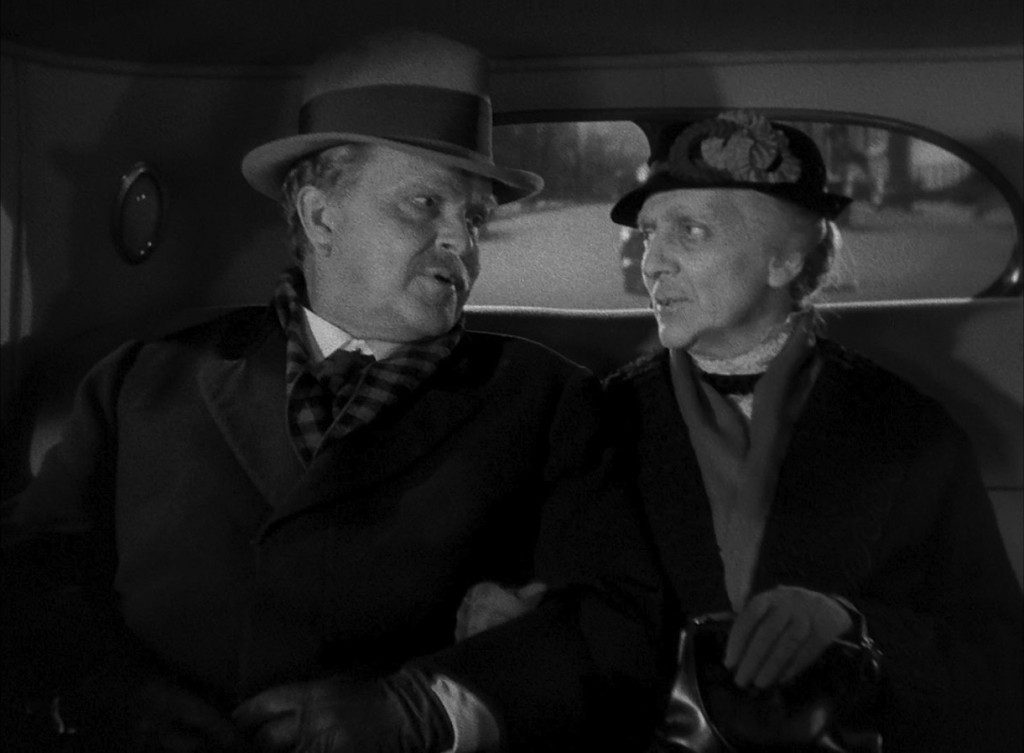
MPAA Rating: NR | Rating: ★★★★½
Release year: 1937
Genre: Classic, Drama, Romance Director: McCarey
What was so startling was this man’s age: he’s in his mid-20s. A member of the younger generation was offended that the church was–according to him–leaving the old people out? I have heard this argument plenty of times before from the gray-haired in the congregation, but never from someone so young. The comment brought up all sorts of questions: what are the actual tensions between the generations? Do both the older and younger feel abandoned by the other? What would a truly intergenerational church look like?
Could a 74-year-old movie reveal some insights?
Every year, the Arts and Faith community publishes a list of their Top 100 Films, generally focusing on artistic and spiritually enriching films. Making a surprise jump from obscurity into the top 10 this year was a Depression-era film from director Leo McCarey called Make Way for Tomorrow. While made in the 1930s, its images and themes withstand the years, offering insight to any generation with eyes to see and ears to hear. As an elderly adult couple is forced by foreclosure to move into their adult children’s homes, we see that intergenerational tensions (and economic crisis) are nothing new.
What makes the film so captivating is the willingness to portray each character beyond stereotype or convention. The adult children bicker about who must house their parents, clearly annoyed by the inconvenience. That’s how they view their parents–as inconveniences. Yet their frustrations are not unmerited. Both parents show willful ignorance about their own capabilities and have meddlesome tendencies. As selfish as the children are, they are the fruit of these two people’s parenting. By the end of the film, there are some clear protagonists in the elderly couple, but they are not without their own faults and peccadillos. No character, regardless of age, is painted as either ideal or deplorable; they are all beautiful and flawed in their own unique ways. You love and hate ’em all.
One particular feature stands out as particularly precious: the elderly folks, Lucy and Barkley, have been happily married for over fifty years. Portrayed with charisma and authenticity by Victor Moore and Beulah Bondi, the aged Coopers’ affection for one another is as admirable today as it was 74 years ago. Their history is filled with bumps and bruises, but all is remembered with an aura of love. The film teeters on being overly sentimental without ever falling into the chasm of mawkish emotional manipulation. If this movie communicates anything, it’s the possibility that committed and loving marriages really can happen with hard work and a bit of grace. And bring some tissue, as the climactic finale is unlikely to leave viewers dry-eyed.
What does a 1930s family drama have to say to the American church in 2011? Maybe this: regardless of generation, we must extend grace to one another. The younger need the older; the older need the younger. Make Way for Tomorrow opens with a brief reflection on the fifth commandment, “honor thy father and thy mother.” Paul exhorts us to treat older men as fathers, younger men as brothers, older women as mothers, and younger women as sisters. This is “family” language for the church. Families all have their dysfunctions, yet they are God-given relational systems that Christ uses to refine us and bring Him glory. For those of us in the younger generation–I include myself here–we must recognize our need to honor and value those who have come before us. Maybe we believe we can’t honor them because we think they’re so screwed up or backwards. But we’re screwed up too, and in dire need of grace. For those in the elder generation, recognize that the same Holy Spirit in you is alive in the emerging generation, and that God used a cadre of young men and women (Jesus and his disciples) to transform the world. Give us grace too; we need all the help and guidance we can get.
There is a scene where the daughter-in-law is teaching bridge in the living room to tables of students. A doddery Lucy wanders the room, awkwardly conversing with the guests, talking loudly into the telephone when her husband calls, creating an environment of annoyance. Lucy means well. Yet her daughter-in-law and son are clearly embarrassed, wishing Lucy would simply go hide in her room, out of sight and out of mind. It makes me wonder how many churches operate out of this same mentality with the generations. The young people will have their youth room, the older people have their class, the children can stay in the nursery or children’s hall, all for the sake of propriety and making things less distracted for one another. Generational isolation simply will not allow the church to thrive. Yes, perhaps it is less awkward to worship with people “like me.” Yet we see Jesus inviting both the old and young into his embrace, all generations crowding around to worship him as king. Could the church begin to foster that kind of kingdom-culture, a culture where generational demographics are not relational barriers?
The titular phrase “make way for tomorrow” is never spoken in the film. Perhaps it doesn’t need to be. The film’s story speaks for itself, exhorting us to embrace one another as family and extend bucket loads of grace as we step into a hopeful future. May the church, both young and old, lead the way into tomorrow together.
IMDB Listing: http://www.imdb.com/title/tt0029192/